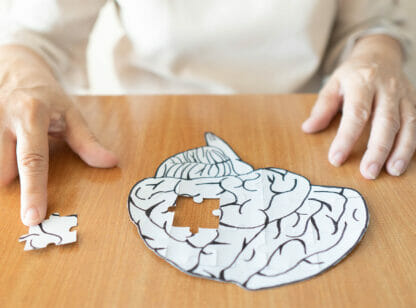Without a doubt, one of the saddest things that can happen with an Alzheimer’s or dementia patient is when family, friends and acquaintances desert those diagnosed due to fear, discomfort and misunderstanding of the disease.
Being connected and involved with others is crucial for every human being, especially those with dementia, but not knowing or understanding how to communicate with those affected is a common problem.
Here are some tips from research experts for interacting with Alzheimer’s patients:
Adapt communication. Laura Gitlin, a dementia researcher and director of The Center for Innovative Care in Aging at Johns Hopkins School of Nursing, offers these suggestions: Speak slowly, simply and calmly. Make one or two points at a time and allow sufficient time to respond; don’t argue. Eliminate noise and distraction – such as the TV or radio –make eye contact, and express affection by smiling, holding hands or giving a hug.
Embrace their reality. Susan Berger, author of The Washington Post article A few Tips from Experts for Interacting with Alzheimer’s Patients, recommends that you embrace their reality.
“This disease is going to give the patient a view of the past – and even the present – that is different from yours,” she says. “If the patient asks ‘When can we go see my mom?’ and you know that the mother is dead, you can say, ‘Let’s go tomorrow’ and change the subject.”
“The goal here is not the truth, but finding a way to avoid upsetting the person,” said Berger.
Don’t give instructions. Do ask the patient to help; everyone wants to be helpful. ‘Can you help me set the table or fold laundry?’ communicates ways to involve the person with dementia and help them feel productive.
Reintroduce yourself. Don’t assume that the patient knows you, especially if you’re not a family member or close friend. Approach from the front so the patient can see, hear and understand you. Do not scare them by suddenly appearing at their side. Even relatives should expect to reintroduce themselves as the disease progresses.
But if the person doesn’t recognize you or says something that doesn’t make sense, don’t be upset in front of them; and don’t talk as if the patient isn’t there.
Do not quiz. Don’t ask such things as ‘Do you remember what you had for breakfast?’ or ‘Don’t you remember your name?’ This can be very upsetting to someone who cannot remember. Instead, offer gentle reminders: ‘The eggs you had for breakfast seemed good’ and ‘Look who’s here: it’s your grandson James.’
Respect autonomy and individuality. In Judith Graham’s article How to Help Alzheimer’s Patients Enjoy Life, Not Just ‘Fade Away,’ published in Kaiser Health News, she notes that “In a review of 11 studies that asked people with dementia what was important to them, they said they wanted to experience autonomy and independence, feel accepted and understood, and not be overly identified with their illness.”
A sizable body of research finds that people with Alzheimer’s and other types of dementia retain a sense of self and can have a positive quality of life overall, until the final stages of the illness.
Alzheimers Coachella Valley (ACV) is located at 42600 Cook Street, Ste. 134, in Palm Desert. If you are interested in learning more, plan to attend one of ACV’s new classes, “Meaningful Conversations with a Dementia Patient,” starting in the fall. All programs are free and open to the public. (760) 776.3100.
Sources: 1) “A few tips from experts for interacting with Alzheimer’s Patients,” by Susan Berger, Health & Science, The Washington Post, May 30, 2016; 2) “How to Help Alzheimer’s Patients Enjoy Life, Not Just ‘Fade Away’” by Judith Graham, Kaiser Health News, April 20, 2017.














































Comments (0)